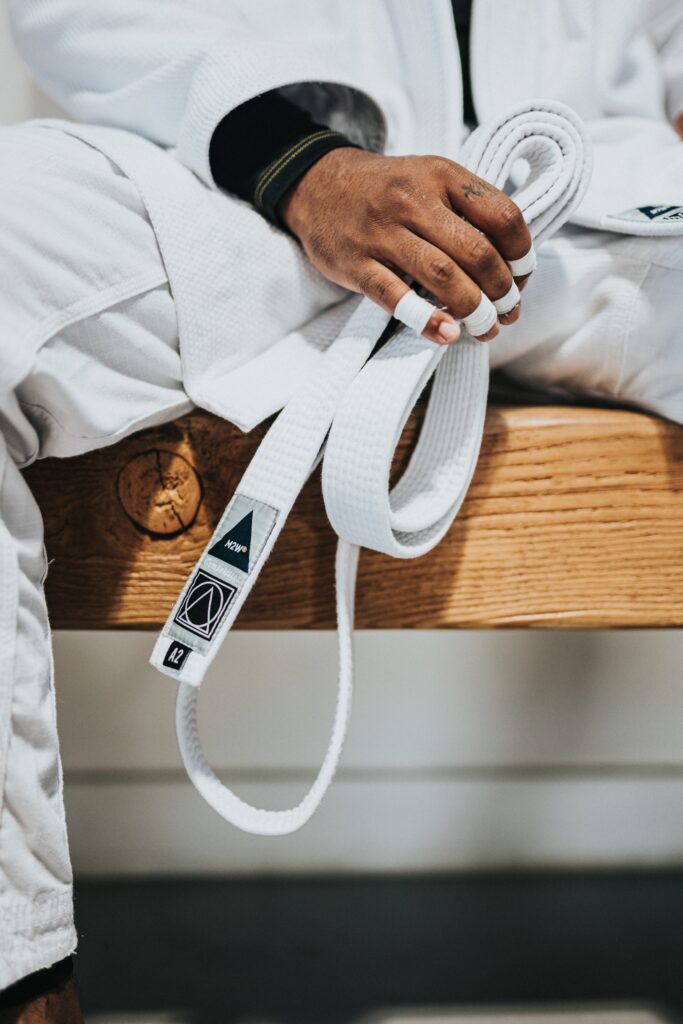
1. Master Yourself
Guard a laser‑focused morning routine—no phone, no noise.
Begin every day on your own terms by keeping external inputs—notifications, news, other people’s agendas—completely shut out for the first hour. Use the quiet to hydrate, stretch, and map your top tasks. The discipline of controlled beginnings builds a psychological moat that protects productivity all day.
Track the process, not the trophy.
Shift attention from distant outcomes to the repeatable actions that create them. Logging daily reps—pages written, kilometers walked, calls made—gives instant feedback and a sense of completion. Progress feels tangible, which sustains momentum long after novelty fades.
Small daily reps create unstoppable momentum.
Consistency compounds faster than intensity. A single push‑up today becomes 365 by year‑end and sparks bigger habits. When actions are tiny, resistance is microscopic, so you execute almost automatically and stack wins that snowball into mastery.
Say no quickly to protect yeses that matter.
Every commitment costs bandwidth; default to refusal unless the upside is unmistakable. A concise, polite “No, thank you” shields your calendar and energy for work, relationships, and rest that align with core goals. Boundaries aren’t barriers—they’re filters for excellence.
Log three lines of gratitude before bed.
Recording specific moments—great coffee, a friend’s text, a solved bug—primes the brain to scan for positives. Over time, you perceive opportunities faster, stress hormones drop, and sleep quality improves. Gratitude turns ordinary days into a continuous mood upgrade.
Celebrate micro‑wins to hard‑wire progress.
When you tick off a workout or close a task, take ten seconds to acknowledge it. Dopamine reinforces the behavior, making tomorrow’s action easier. This loop of effort‑reward‑effort transforms discipline from grind to game.
2. Think Clearly
List observable facts before opinions.
Write what you can verify—numbers, dates, direct quotes—before interpreting. This separation prevents cognitive bias from distorting reality and produces decisions rooted in evidence rather than assumption.
Adopt the mantra: “Pause, then decide.”
Insert a deliberate breath between stimulus and response. That tiny gap is a superpower: it lowers emotional noise, lets logic catch up, and often reveals a smarter option waiting beneath the initial impulse.
Listen twice as long as you talk.
Silence is data collection. It uncovers motives, uncorks hidden objections, and earns trust because people feel heard. Your eventual words land with precision instead of scattershot guesses.
Proudly admit, “I don’t know—yet.”
Ignorance acknowledged is curiosity unlocked. Admitting gaps invites collaboration, accelerates learning, and signals confidence strong enough to survive uncertainty. It’s a hallmark of every high‑performance culture.
Train critical thinking and emotional intelligence like muscles.
Challenge ideas with first‑principles questions and reflect on your reactions during conflicts. Repetition wires neural circuits for nuance, letting you dissect problems logically while reading the room empathetically.
Remember: Silence is a full answer that keeps negotiations in your court.
After making an offer or stating a boundary, resist filling the void. The other party will speak to relieve tension, often revealing priorities or concessions. Strategic quiet puts you in control without a single extra word.
3. Care for Body & Mind
Move daily—even a brisk 10‑minute walk extends lifespan.
Light activity elevates heart rate, flushes lymphatic waste, and boosts neurotransmitters linked to mood. By anchoring movement as a non‑negotiable, you convert exercise from optional event to biological maintenance.
Choose single‑ingredient foods and hydrate every hour.
Eating items that your great‑grandparents would recognize—eggs, apples, lentils—crowds out processed fillers and stabilizes blood sugar. Pair that with regular water intake to keep cells efficient and focus razor‑sharp.
Sleep 7–8 hours; protect it like investor capital.
Deep sleep repairs muscle, consolidates memory, and regulates hormones that dictate appetite and motivation. Treat bedtime as an appointment with tomorrow’s potential; you never miss it without rescheduling.
Treat rest as a baseline requirement, not a trophy.
Downtime isn’t a reward for work done; it’s the prerequisite for work worth doing. Schedule mental white space—walks without podcasts, afternoons without meetings—to prevent cognitive debt from accumulating.
Anchor the day with breathwork or deliberate stillness.
Five minutes of box breathing or meditation shifts the nervous system from fight‑or‑flight to rest‑and‑digest. Stress signals quiet, creativity rises, and you regain executive control over attention.
Laugh, seek sunlight, and hug people—scientifically proven serotonin boosts.
Natural light calibrates circadian rhythms, laughter releases endorphins, and physical touch triggers oxytocin. Together they form a biochemical cocktail that fortifies resilience against anxiety and depression.
4. Build Resilience
Accept that fairness isn’t guaranteed.
Recognizing life’s asymmetries frees you from victim narratives and focuses energy on response, the only lever you truly control. Acceptance is the foundation of pragmatic action.
Chase the fear signal—it marks growth zones.
Physiological discomfort—racing pulse, sweaty palms—often flags arenas where skill and courage can expand. Leaning in converts anxiety into adaptive capacity and widens your comfort circle permanently.
Fail fast and often to map the edges of mastery.
Each controlled misstep generates feedback loops no textbook can supply. By iterating quickly, you shorten the distance between ignorance and insight while inoculating ego against fragility.
What you resist usually contains the lesson.
Persistent irritation toward a task or person signals unfinished business. By confronting rather than avoiding, you extract the learning, dissolve the trigger, and reclaim mental bandwidth.
Stay fiercely present; you can endure anything for one day.
Breaking overwhelming challenges into 24‑hour chunks neutralizes catastrophizing. Focus on executing today’s next right action; momentum carries you to tomorrow’s sunrise with renewed capacity.
5. Communicate Powerfully
Master persuasion, negotiation, public speaking—ROI is exponential.
These skills convert ideas into action and amplify every other competency. A single compelling pitch can secure resources, allies, or clients that alter life trajectory.
Speak with clarity + empathy for instant trust.
Replace jargon with concrete language and mirror the listener’s concerns. When people feel understood, they lower defenses and align naturally with your proposal.
Give first; reciprocity fuels networks.
Offer value—introductions, advice, feedback—without calculating immediate return. Generosity seeds goodwill that circles back in unexpected and often multiplied forms.
Learn a new language—it rewires cognitive flexibility.
Juggling vocabularies forces the brain to switch contexts rapidly, enhancing problem‑solving and creativity. It also unlocks cultural doors, expanding both your worldview and professional market.
6. Design a Life That Works
Attack your Top 3 priorities before noon.
Morning output leverages peak willpower and shields critical tasks from afternoon chaos. Finishing early grants psychological freedom and space for deep work or leisure.
Use the 2‑minute rule to vaporize trivial tasks.
If an action takes less than 120 seconds—send a file, tighten a screw—do it immediately. This policy keeps small obligations from snowballing into mental clutter.
Automate, delegate, eliminate—friction is the enemy.
Recurring chores belong to software, teammates, or the trash. Streamlined workflows liberate hours for innovation and relationships, the real value creators.
Self‑worth ≠ productivity metrics.
Anchor identity in character and values, not output volume. Detaching ego from to‑do lists prevents burnout and supports sustainable excellence.
Invest early, save consistently, master spreadsheets for clarity.
Automatic transfers into diversified portfolios let compounding do heavy lifting, while a simple budget spreadsheet exposes leaks and informs smarter allocations.
Schedule offline leisure to prevent burnout creep.
Commit calendar slots to hobbies, family dinners, or silent retreats. Planned recovery ensures you arrive at Monday refreshed rather than resentful.
7. Think Long‑Term
Invest first in health, learning, relationships—assets that don’t crash.
Muscle, knowledge, and social capital appreciate over decades and hedge against financial volatility. Allocate time and money accordingly before chasing speculative gains.
Your habits paint the future in advance.
Daily behaviors are wet cement setting into tomorrow’s reality. Audit routines, upgrade one at a time, and watch future circumstances align with present choices.
Act now; perfect conditions never arrive.
Opportunity cost of waiting quietly compounds. Launch the project, apply for the role, make the call—course‑correct on the move instead of from the couch.
Surrender the need for external applause.
Validation dependence traps you in other people’s priorities. Internal scorekeeping restores autonomy and accelerates authentic achievement.
Build a life you won’t need a vacation from.
Integrate work you enjoy, relationships you cherish, and environments that energize. When everyday life feels right, escape becomes optional.
8. Live Fully
Use the good china on an average Tuesday.
Deferring joy mortgages present moments for a future that isn’t promised. Elevate the mundane and remind yourself that today is the main event.
Laugh louder, love harder, forgive faster.
Intense positive emotions widen perspective, deepen bonds, and lighten emotional baggage. They convert fleeting days into memorable stories.
Embrace eccentricity; normal is overrated.
Expressing quirks attracts genuine connections and frees creative thinking suppressed by conformity. The world rewards distinctive value, not copies.
You get roughly 4,000 weeks—spend them like they matter, because they do.
A finite countdown sharpens priorities instantly. Allocate hours to pursuits and people that echo beyond your lifetime, and let trivialities self‑destruct from neglect.
Final Thought
Every paragraph here is a lever. Pull even one consistently and watch your trajectory rise; combine several and the ordinary stretches into the extraordinary.




